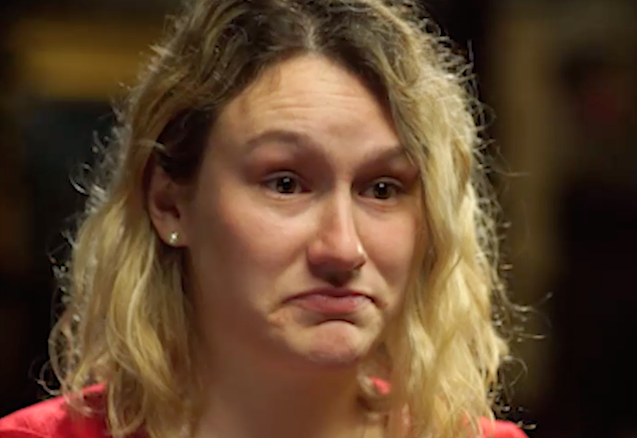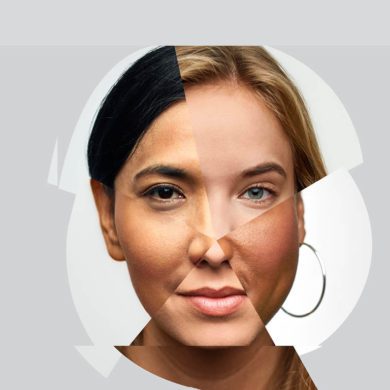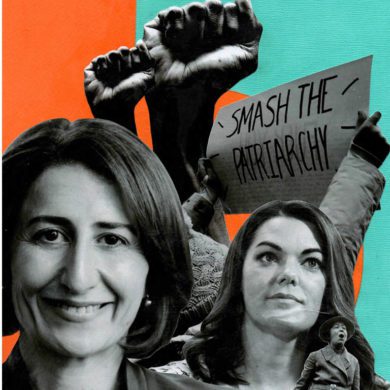As she pulled up her covers and settled into bed that night, the 13-year-old girl known to the court as ‘K’ should have felt safe and secure. Her mum was out, but her stepdad and brother were in the house with her, along with her brother’s friend, Bradley John Phillips, 21, who often stayed over.
With Phillips in the house, though, the girl was far from safe, and she didn’t feel it; in fact, she’d fallen asleep with a metal pole by her bed “for protection”. But when Phillips woke her up some time that night, the pole was out of reach, she said. Her hands became wedged beneath her. She tried to push him off, and claimed she “kneed him in the gut”, but it didn’t make a difference. After it was over, the court heard, he wiped her vagina with toilet paper, and left the room.
The girl claimed Phillips had raped her four times. She hadn’t told her family, she said, because she didn’t think she’d be believed; only later had she confided in a counsellor at youth camp, and Phillips had been arrested.
Legally, of course, a 13 year old can’t consent to sex, but as the defence lawyers knew, a lack of consent wasn’t all that was needed to secure a conviction. In Queensland, a man accused of rape can rely on a centuries-old legal loophole that allows him to claim that he made, essentially, an honest and reasonable mistake in thinking the complainant had consented. It’s called the ‘mistake of fact’ defence – and lawyers and rape counselling services believe it’s being used all too often to undermine victims and successfully secure a defendant’s acquittal.
She tried to push him off but it didn’t make a difference
There are no available statistics on how often this defence is used, but anecdotally lawyers say it’s very common. “Let’s put it this way,” says Julie Sarkozi, solicitor with the Queensland Women’s Legal Service. “If a client of mine says that the accused in her case has been charged and is pleading guilty, rather than not guilty, I think he hasn’t got legal advice.”
In the Phillips case, the 13-year-old girl said she struggled to fight him off on two of the occasions he came to her room. In the other two, she didn’t physically resist, which meant the judge could direct the jury on the ‘mistake of fact’ defence. Effectively, the fact she said she didn’t struggle in those two cases introduced the idea that she may have consented. Following an appeal, Phillips was acquitted on one charge, and found guilty not of rape but merely “unlawful carnal knowledge” in the others.
“I challenge anyone to read that case, her testimony, and think for a moment that the defendant … didn’t know what he was doing was not okay,” author and campaigner Bri Lee told the ABC recently.
Calls have been growing to close the mistake of fact loophole in cases like these, but so far no political action has been taken – a situation Lee describes as “very frustrating”.

So, along with Professor Jonathan Crowe, of Bond University, she is spearheading a campaign to raise public awareness of mistake of fact, and pressure the Attorney General to change the law. As Professor Crowe says, “When a twenty-one-year old man climbs on top of a thirteen year old girl in her bed and penetrates her without invitation or encouragement, it should not matter whether she struggles or not.”
But in Queensland at least, it does.
The issue of consent should, in theory, be simple but all too frequently isn’t. In the eyes of the law, consent is an agreement given freely and voluntarily. Rape is sexual intercourse without free and voluntary consent.
In court, men accused of rape will often argue that the woman did consent to intercourse, but the mistake of fact defence means they can make an alternative argument. “They can say that even if the complainant didn’t consent, the defendant mistakenly thought that she was consenting,” says Professor Crowe. “If the defendant can show the mistake was honest and reasonable in the eyes of the law, then that can be the defence of the charge.”
In practical terms, this means that a person accused of rape can use all of the mitigating arguments that other states in Australia have gradually removed from their legal codes.
They can say that even if the complainant didn’t consent, the defendant mistakenly thought that she was consenting
Tasmania, for example, requires a man to seek positive, active consent, meaning a person does not consent if they do not “say or do anything to communicate consent.” So, a victim’s failure to say no – or her remaining silent – can’t be taken as evidence that she has consented. In Queensland, however, an accused can use the ‘mistake of fact’ defence to argue that, because she didn’t actually say no, he made the “reasonable and honest” mistake that he thought she was ok with what he was doing – he didn’t realise she wasn’t consenting because she didn’t fight him off.
Yet as Crowe and Lee explain on a website they’ve created to raise awareness of the loophole, there are many reasons why a woman might not fight back, even though she doesn’t consent. Perhaps she is afraid her assailant might become more violent, or she judges that it’s rationally preferable to ‘get it over with’, rather than risk escalating the assault. Sometimes, victims experience what’s known as ‘the freeze’ (or ‘tonic immobility’), where the body’s response to a threat is neither fight nor flight but staying silent and still.
Last year, 24-year-old Saxon Mullins made headlines after appearing in a Four Corners report about her experience at the centre of one of Australia’s most controversial rape trials. Mullins said she’d been raped, but the fact she “froze” was a significant factor in the accused, Luke Lazarus, being acquitted of the charge.

In May, 2013, Mullins and a friend were two happy, excited 18 year olds on their first proper night out in Kings Cross when they ended up at a club part-owned by Lazarus’ father. After chatting briefly, Lazarus invited Mullins to a VIP area, but instead led her outside to a dark alleyway, where she claimed he anally raped her. A jury found him guilty, but on appeal Judge Tupman overturned the verdict, finding that Mullins’ silence was one of the factors that could have led Lazarus to believe she consented to sex, even though in her own mind she hadn’t.
When Mullins is asked now to describe what it’s like to freeze, she uses one word – weird. She is bright and articulate over the phone, but when she talks about what she felt that night, there’s anxiety in her voice. “You’re taught about fight or flight, but your body does neither of these things; you’re broken,” she says. “For me, it was one of the [ways] I felt powerless. I couldn’t even use my body in that moment to help myself.”
Crowe and Lee identified 35 Queensland appeal cases in which the ‘mistake of fact’ defence was raised, some – like the Phillips case – dating from more than 10 years ago. In some trials, the accused relied on the defence to argue they made an “honest and reasonable” mistake because the complainant didn’t speak English as her first language, for example, and he misinterpreted her responses. Or that she’d started having sex and he didn’t realise she’d withdrawn consent as the sex became rougher. Or they were too intoxicated to realise the woman wasn’t consenting. In other circumstances this defence would be laughed out of court, says Professor Crowe, but in cases of sexual assault it seems to be a valid argument.
“It’s hard to imagine saying you got drunk and then got behind the wheel of a car, and your defence was to say you were so drunk you thought it was ok to drive,” he says. “That defence would not be taken seriously in court, but it’s the same argument that seems to regularly be made in rape trials.”
It’s hard to imagine saying you got drunk and then got behind the wheel of a car, and your defence was to say you were so drunk you thought it was ok to drive
In the year that Lee, a former lawyer, spent as a judge’s associate, travelling around Queensland’s district courts, she saw a distressing number of cases in which women’s testimony was disbelieved, or their choice of clothing and behaviour was used to infer unreliability, and the ‘mistake of fact’ defence was employed to secure an acquittal. “I just couldn’t believe what I was seeing,” she says.
The notes she took during that time became a book, Eggshell Skull (Allen & Unwin), which documents the psychological effect of the courts’ unending stream of sexual assault cases and her own, internal struggle with a traumatic incident inflicted on her as a child. Since the book’s release a year ago, she has received a deluge of emails and messages from people keen to share their own experiences.
“Sometimes people want my phone number or they want to meet up because they want specific advice on whether they should take their matter to court and I just feel so awful when I get those,” she says. “I’m not a professional counsellor, or their lawyer, so I can’t give them advice, and those are the emails I find hardest to deal with because neither of us comes away feeling good. I just don’t have the answers they’re looking for.”
After deciding not to continue working in the law, Lee sees the irony in finding herself working in advocacy, listening to the types of stories she heard described in such horrific detail in court. “One of the reasons I chose not to continue with law, and particularly criminal law, was that I found it too upsetting and yet I feel compelled to do research and advocacy in this area,” she says. “And now I feel just as immersed in these unique horrors as I was when I was working in the sector.”
As well as building their site, Crowe and Lee have prepared a paper, currently under peer review, in which they discuss the Court of Appeal cases in which the defence was relied upon by the defendant.
They propose two approaches: firstly, that the ‘mistake of fact’ should be not be allowed to be used with regard to consent, and secondly, (as a lesser but still welcome improvement), that restrictions are placed on the defence to consider whether a defendant acted recklessly, or sought positive steps to establish consent. “An obvious way to do it is to ask someone if they’re ok with what’s happening – make some sort of inquiry to make sure they’re willing to proceed,” says Crowe.
Yet Lee says that the Attorney General, Yvette D’ath, has been slow to respond to calls for change. “It’s baffling and very frustrating,” she says. “Jonathan and I have been doing this work for 12 months, and before us the WLS has been doing it for two or three years.”
In a statement, the Attorney General told PRIMER that “the Palaszczuk government has a proud record of reform in the area of sexual violence and supporting victims.
“The government is considering the views of Queensland’s foremost legal stakeholders and reviewing dozens of Court of Appeal judgments handed down since the definition of consent was previously amended almost 20 years ago.”
Making an allegation of sexual assault or rape is only the start of what’s often a long and gruelling process for the complainant, says Crowe. “What you’ll hear from survivors who’ve been through the process is that it’s like being victimised all over again, because their sexual assault, which in many cases is the most horrific thing to happen to the survivor in her life, is relived through the criminal justice process, not just once but many times. She’ll have to tell the story to the police, maybe multiple times; in court, maybe multiple times; and in court it will potentially be under very hostile and gruelling cross examination.”
Some of Sarkozi’s clients describe cross-examination as abuse. “I’ve spoken to clients who’ve felt so abused they’ve left court and vomited,” she says. After all they’ve gone through, an acquittal can be devastating.
I’ve spoken to clients who’ve felt so abused they’ve left court and vomited
“[Lawyers] tell you everyone appeals the verdict,” adds Mullins, “so you think it’s fine, the appeal will be dismissed.” Travelling in Ireland at the time Lazarus’ appeal was being heard, she remembers sitting on her bed at 2 o’clock in the morning when she received the news his guilty verdict had been overturned. “It’s a really awful moment – even though I’m a world away I’m automatically scared – that fear I guess I hadn’t really faced since the incident. And you think, did I go through all that for nothing?… I still don’t know if it was worth it.”
But despite her devastation, Mullins feels proud that her case directly influenced New South Wales’ decision to launch a law review into the sexual consent laws – a move she hopes will be replicated in Queensland. “I have no problem sharing my story but it’s emotionally draining, bringing up the details of my case that I don’t go back to so often. But if my voice has any impact at all, I have to use it.”














1 Comment